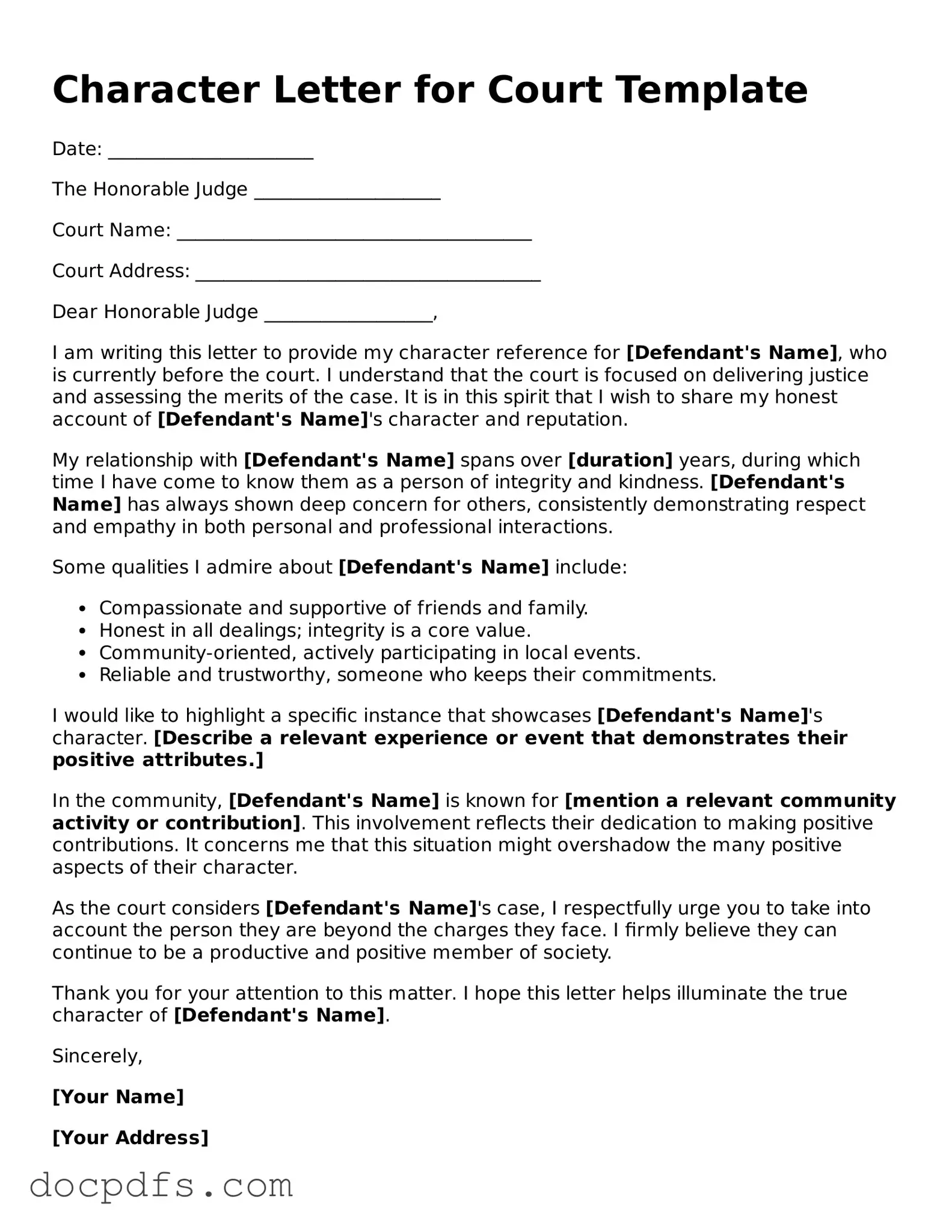Legal Character Letter for Court Document
The Character Letter for Court is a written statement that provides insight into an individual's character, often submitted during legal proceedings. This letter can be a vital tool for influencing a judge's perception, offering personal anecdotes and observations about the person's behavior and values. It serves as a way for friends, family, or colleagues to advocate on behalf of someone facing legal challenges.
Open Character Letter for Court Editor Now

Legal Character Letter for Court Document
Open Character Letter for Court Editor Now

Open Character Letter for Court Editor Now
or
⇓ Character Letter for Court
Finish this form the fast way
Complete Character Letter for Court online with a smooth editing experience.